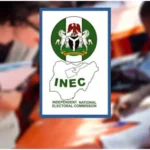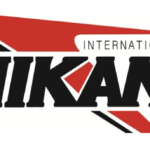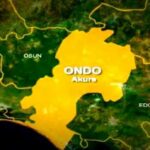By David Ngobua, Salim Umar Ibrahim (Kano), Dickson S. Adama (Jos), Abdulkadir Shehu (Kaduna) & Abdulkareem Mumuni (Ilorin)
At the moment, there is no doubt that there is a huge gap in sports development between southern and northern Nigeria. This has become a worrisome trend, especially in view of the fact that the North is also blessed with abundant talents, who are only waiting to be discovered and nurtured to stardom.
Unfortunately, while their southern counterparts appear to have embraced sports as lucrative business and given it the necessary public and private sector support to thrive, it is clear that most states in the North are yet to give adequate attention to the sector.
It is said that this is partly the reason most of the national teams in Nigeria are dominated by players from the South.
It is becoming increasingly difficult to find extraordinary athletes like the Kaduna- born Miriam Usman, who dominated women weightlifting in the 75kg. She was national, African and Commonwealth champion, as well as Olympics silver medalist.
Legendary footballers like Ismaila Mabo, Sam Garba Okoye, Baba Otu, Garba Lawal, Tijani Babangida, Dahiru Sadi, Heyman Abdullahi, Patrick Pascal and a host of others, are some of the stars that shone brightly from the North
The story of sports in the North is that of lack of sporting facilities and motivation. The account of a young sprinter from Kaduna State, Suraj Habib, who had to relocate from Zaria to Lagos to pursue his dreams of becoming a household name in athletics underscores the fact that talents abound in the North. Unfortunately, they are being held down by unavailability of facilities and training opportunities.
Speaking to Making of Champions, the first professional athletics club in Nigeria, Habib said, “It was a big step relocating from Zaria to Lagos because since I was born, I had never been away from my family for more than a week.
“I found it very challenging because my family is a big one and everybody loves me. I am very close to my mum and support her a lot, but I just said let me come here and see what I can make of myself because if I were to remain in Zaria, I may not have as much support to travel for competitions and so on as I am experiencing here. So I had to leave home to chase my dreams.”
Habib may go on to realise his dream because of his bravery, but many of his kinsmen, some of who are even more talented, may waste away because they don’t have the opportunity to move out; and the support and facilities they need to flourish are not easily available at home.
It is also an open secret that most of the sporting facilities in Nigeria are found in the southern part of the country. Although in order to encourage overall sports development in the country, the federal government provided a stadium in each of the six-geo political zones, states in the South usually go the extra mile to provide additional facilities for use by their teeming youths, who are passionate about sports.
Most of the sports administrators in the North who spoke to Daily Trust on Sunday on the declining fortunes of sports in the region, blamed the unfortunate situation on a number of factors, including the non-availability of standard facilities, lack of sponsorship, as well as socio-cultural and religious inhibitions.
Speaking on why the North is no longer producing notable sportsmen and women, the Commissioner for Youths and Sports Development in Kano State, Kabiru Ado Lakwaya, said the region was lagging behind due to lack of facilities, qualified personnel and inadequate competitions.
He said, “If you are talking about sports development you are talking about the three parameters: personnel, facilities and competition.
“Facilities take 70 to 85 per cent of sports development. But if you look at the whole North, we don’t have enough facilities to accommodate the different games. For instance, we have only two standard swimming pools in Kaduna and Bauchi states. The remaining 17 states in the North have no swimming pool. How can we develop swimming in these states?
“In athletics, only few states in the North have standard tracks. You can find tracks in states like Kano, Bauchi, Benue and Kaduna. If there is a competition in athletics, how do you think the North would fare?”
Lakwaya also said another problem of sports development in the North was lack of trained coaches to harness abundant talents.
He said that most times, states in the region depended on athletes from southern states to represent them, especially in football.
“There is dearth of qualified coaches in the North, so professional football clubs go to the South to hire coaches and players instead of developing our talents,” added.
The commissioner concluded by saying that the Federal Ministry of Youth and Sports Development’s zonal offices in Kaduna, Bauchi and Jos had not done enough in organising competitions for the youth in the North. He said that without regular competitions sports would not grow.
To bridge the existing gap, the Kano State Director of Sports, Bashari Ahmad Maizare, said states should pay more attention to facilities development, training of coaches and regular competitions for athletes to develop their skills.
“Sports ministries should be assigned to technocrats with passion for the development of the sector. There is the urgent need to assign sports administration to capable hands who can bring the needed changes,” he said.
In his contribution, the Director of Sports Development in the Kaduna State Ministry of Sports, Ibrahim Yakubu, said his state was not lagging behind, insisting that in recent times, Kaduna has been a dominant force in sports like hockey, volleyball and cricket.
He, however, agreed that the state is not doing particularly well in some games, which he blamed on lack of sponsorship.
According to him, states like Lagos, Edo and Delta usually have sponsors, a situation that makes it easy for them to continue to excel.
“States in the North are struggling to develop sports because we don’t enjoy corporate sponsorship. This is a major setback for us.
“Here in the North, a lot of people are not enlightened in the area of sports sponsorship. There is the urgent need to sensitise them. There are so many philanthropists who can sponsor sports, but they are not well informed,” he said.
He, therefore, said that to close the gap between the South and North in terms of sports development, well-meaning people in the North must be educated on the importance of sports and be encouraged to sponsor sporting activities.
“There are so many companies in the South that sponsor sports. But in the North, we don’t have such types of companies or industries we can approach for sponsorship. Without sponsors, it will be difficult to develop sports,” he reiterated.
Mallam Bolakale Adisa Mogaji, the executive chairman of the Kwara State Sports Commission, blamed the unfortunate situation on socio-cultural and religious beliefs. He also said southern states were fond of poaching athletes from the North.
He said, “There is more awareness in the South. It is only recently that our daughters are allowed to participate in sports in Kwara State; and they are not doing badly. But in some northern states, you can hardly see female athletes. This has to do with religion, culture and traditional beliefs. Down South, they don’t take all these things seriously. And the most standard facilities are found in the South.
“Then there is the problem of sponsorship. Some states in the North don’t put so much money into sports; but again, we are lucky in Kwara. Our government is doing well and there are results to point at. I pray that other states in the North would have our kind of awareness.”
He also lamented that most states in the North concentrate on football, to the detriment of other sports. According to him, less attention is being paid to sports like volleyball, handball, hockey, cricket, rugby and others.
On the issue of brain drain, Magaji said, “Edo, Delta, Rivers and others are used to poaching athletes from rival states. Other states suffer to produce their athletes, but when they mature, they are poached by richer states like Edo, Delta and Rivers.”
The Commissioner for Youths and Sports in Plateau State, Victor Lapan, said the problem of sports development in the North could be attributed to the sharp decline in the education sector.
He said that in the past, sporting activities were developed right from the schools, where there were dedicated periods for games like handball, football, athletics, shot-put, badminton and a host of others.
Lapan lamented that these days, such sports are hardly found in schools and this has affected sports development in the region.
He blamed the unfortunate situation on the government that took over most of the schools founded and managed by missionaries, who paid attention to sports development in their schools.
Lapan also said that apart from insecurity, which is ravaging the North, disparity in federal government allocation to southern and northern states was another reason as states with higher allocations had more funds to develop sports.
In addition, he alleged that some southern states even use their funds to poach or entice athletes from the North to represent them at national or international competitions.
He concluded that Plateau State was one of the casualties of poaching.

 Join Daily Trust WhatsApp Community For Quick Access To News and Happenings Around You.
Join Daily Trust WhatsApp Community For Quick Access To News and Happenings Around You.


